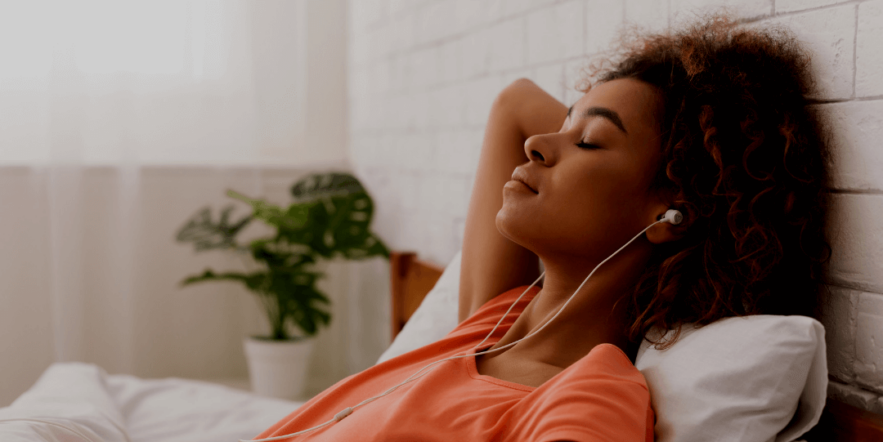Insomnia is a frustrating disorder. Studies show 3 in 10 adults have insomnia symptoms. Although we are frequently asked to ditch our electronic devices as a way of promoting sleep, apps are currently available to treat insomnia.
What Is Insomnia?
Insomnia is a sleep disorder where a person is unable to fall asleep or stay asleep despite adequate opportunity to do so. This leads to tons of daytime problems, like trouble focusing, that can impact relationships and productivity. The effects of insomnia can be classified as physical and psychological.
Physical problems associated with insomnia include:
- Obesity
- Hypertension
- Diabetes mellitus
- Heart disease
- Stroke
- Kidney disease
The psychological effects of insomnia include:
- Headaches
- Irritability
- Fatigue
- Mood Swings
- Trouble concentrating
What Is Chronic Insomnia?
Insomnia may be classified into acute and chronic insomnia. Acute forms of insomnia are short-term and last for less than three months. They are often triggered by stressful conditions such as the loss of a loved one, loss of income, and health issues. These typically do not last for long periods of time.
When insomnia persists beyond three months, however, it is termed chronic insomnia.
Chronic insomnia is characterized by:
- Problems falling asleep or staying asleep
- Symptoms that occur at least three times a week.
- Symptoms that last more than three months
Insomnia Treatments
A healthy sleep habit can prevent and treat insomnia. Some suggestions are listed below.
- Have a regular bedtime schedule
- Limit caffeine use in the evenings
- Keep your room quiet
- Do something relaxing towards bedtime
- Limit exposure to screens toward your bedtime
Several remedies are available for insomnia. In general, treatment options for insomnia include prescription pills, cognitive behavioral therapy (CBT), and herbal teas and supplements.
Unfortunately, any medications (over-the-counter, supplemental, or prescription) often come with a number of side effects. Medicines can help, heal, but also harm, and having alternatives to putting drugs into your body that may help your condition without such negative impacts.
Phone Apps for Insomnia
Several phone apps that help people sleep are available. Some of these apps work by providing soothing sounds, music, and stories. There are also apps that provide guided meditation. Most of these apps are wellness tools, however, and do not make claims of treating insomnia. They help alleviate anxiety and calm down their users. There are also apps that are useful in helping a person track their sleep pattern.
However, there are now different sets of phone apps that have undergone clinical trials and have documented evidence of being effective for insomnia. These apps are approved by regulatory bodies as a treatment for chronic insomnia.
Phone apps used to treat insomnia deliver CBT digitally. The American academy of sleep medicine recommends CBT for the treatment of chronic insomnia in adults. Digital CBT (dCBT) delivers therapy in several ways
- Telemedicine. This is very similar to a traditional CBT. Here, clinicians provide live counseling via telemedicine. One advantage of this method is that it improves healthcare access for those in remote areas. Once the internet is available, anyone can log on and have access to expert care. A major disadvantage is that considerable clinician time is needed.
- Fully Automated CBT: This is a self-guided therapy available via the internet. This type of program can function without clinician support, although that option may also be included in some apps. With these programs, sleep diaries are used to collect necessary data and to customize the program for each patient. Users of these apps can work through the program without needing one-on-one care. This reduces contact with healthcare facilities and saves time for the patient and healthcare professionals.
- Guided CBT: This combines automated programs with clinical support. Software apps provide therapy just like the fully automated CBT, but require additional support from clinical staff.
Several studies have demonstrated that digital CBT is effective in reducing the severity of insomnia. A Norway-based study in 2016 through 2018 found that, while no participants reported negative effects (i.e. there were no harmful side effects), those that used a dCBT program had a “significantly greater reduction” in insomnia than those that did not use the program.
How Does CBT Work for Insomnia?
CBT helps people with insomnia by:
- Identifying unpleasant thoughts related to sleep
- Altering negative thoughts related to sleep
- Beginning behavioral changes that promote sleep.
There are several components of CBT when treating insomnia:
- Cognitive therapy: This helps users recognize and change negative thoughts about sleep. Examples of such negative thoughts are “I won’t fall asleep without medications,” and/or “I must get seven hours of sleep.” These unhelpful thoughts should be replaced with more appropriate ones.
- Stimulus control: People with insomnia may get anxious because they associate their bedroom or bed with sleep problems. Stimulus control attempts to link the bed with restful sleep. During stimulus control, the person with insomnia is encouraged to go to bed when sleepy and get out of bed when there is difficulty falling asleep. They only return to bed when they feel sleepy. The bed is used only for sleep and sex during the treatment period.
- Sleep restriction: The goal of this stage is to reduce the time spent in bed awake. Sleep diaries are used to calculate how much time a person spends asleep in bed. Thereafter, a sleep window reflecting these hours is set. The patient is assigned a pre-set time to go to bed and get out of bed. This sleep window is adjusted after about two weeks.
- Relaxation therapy: The person learns and practices relaxation techniques such as abdominal breathing and progressive muscle relaxation. One method, for example, is for the person to contract and relax specific groups of muscles.
- Sleep hygiene: Patients are encouraged to go to bed at the same time and wake up at the same time. Other strategies of this stage include the removal of electronic devices from the bedroom and avoidance of daytime napping. The room should be relaxing and kept at a comfortable temperature.
Adverse Effects of Digital CBT
Digital CBT is generally safe. Some adverse effects include:
- Using dCBT may delay people with other sleeping disorders (aside from insomnia) from seeking care and getting treated.
- Sleep restriction may increase daytime sleepiness, and this may increase the risk of accidents, falls, and seizures. As such, dCBT should be used with caution for those with the following conditions:
- Epilepsy
- Schizophrenia
- Sleep apnea
- Pregnancy
Do Apps Help Cure Insomnia?
Insomnia is a common disorder linked to several medical conditions, and CBT is a proven effective remedy. Phone apps are useful tools for delivering CBT. Several models of digital CBT are available on today’s marketplace. They help individuals identify negative thoughts and replace them with more helpful thoughts. In addition, these phone apps also teach behavioral techniques such as relaxation and sleep hygiene to help improve symptoms of insomnia.






